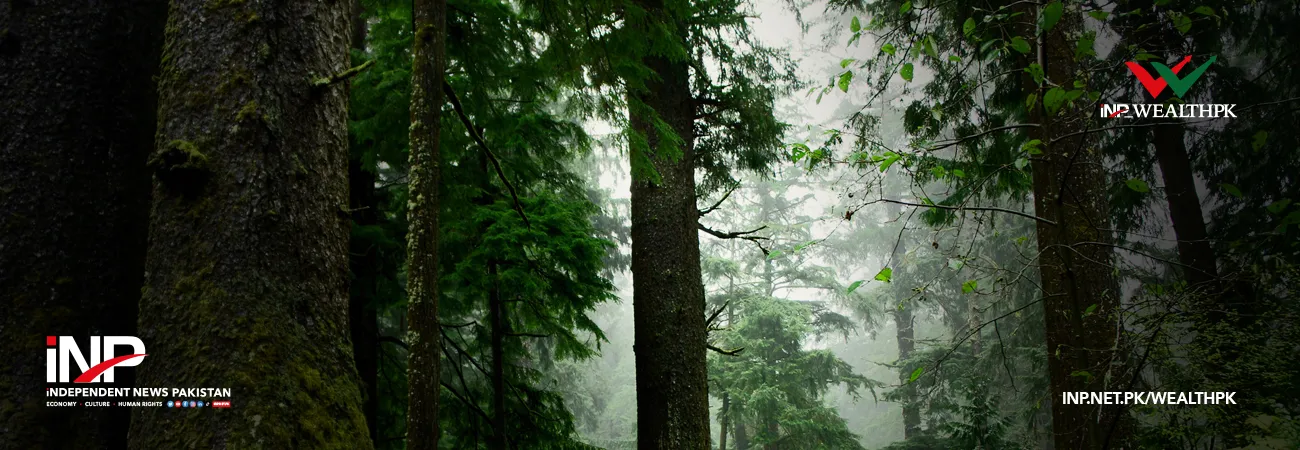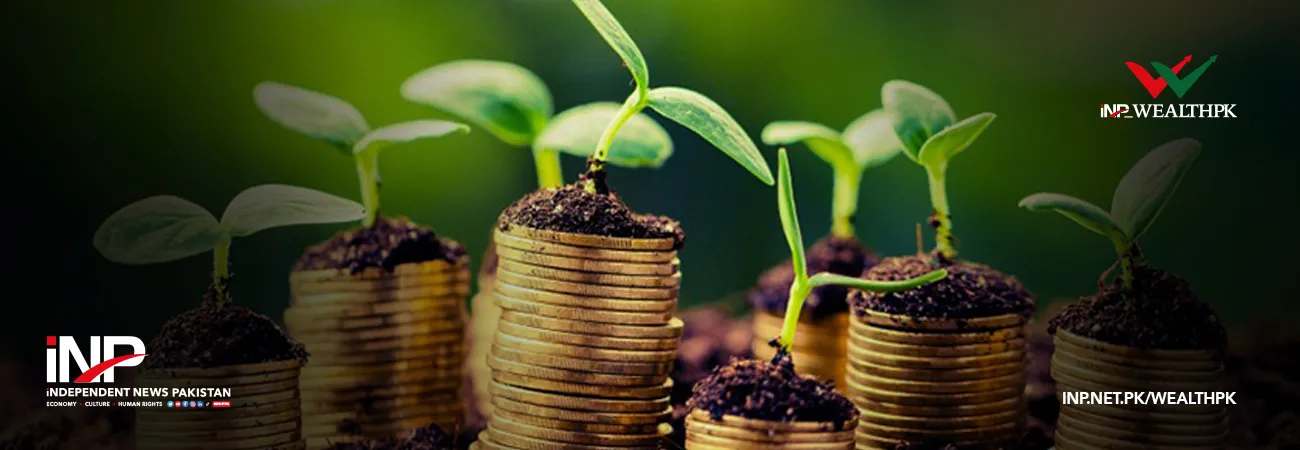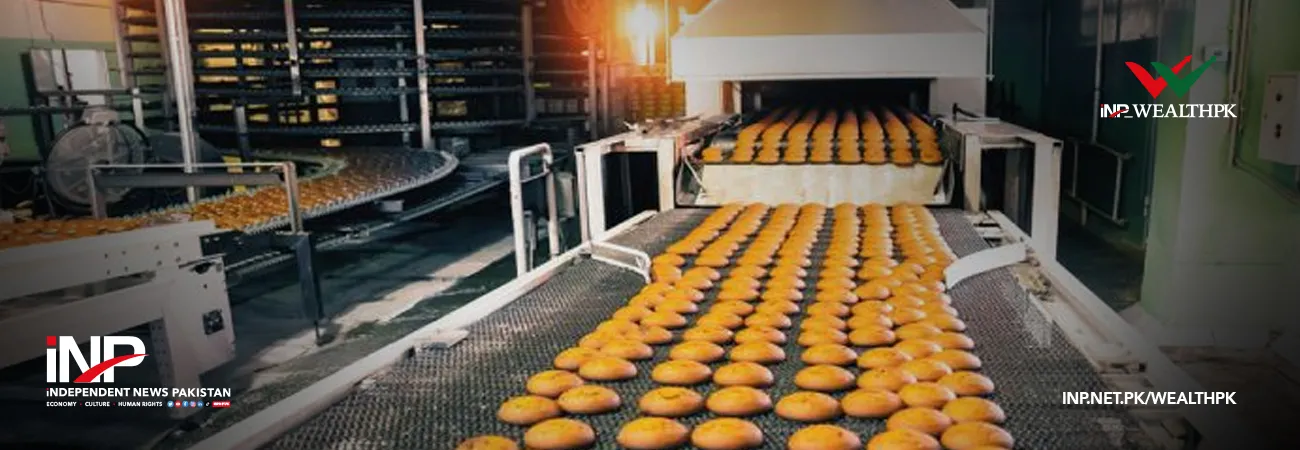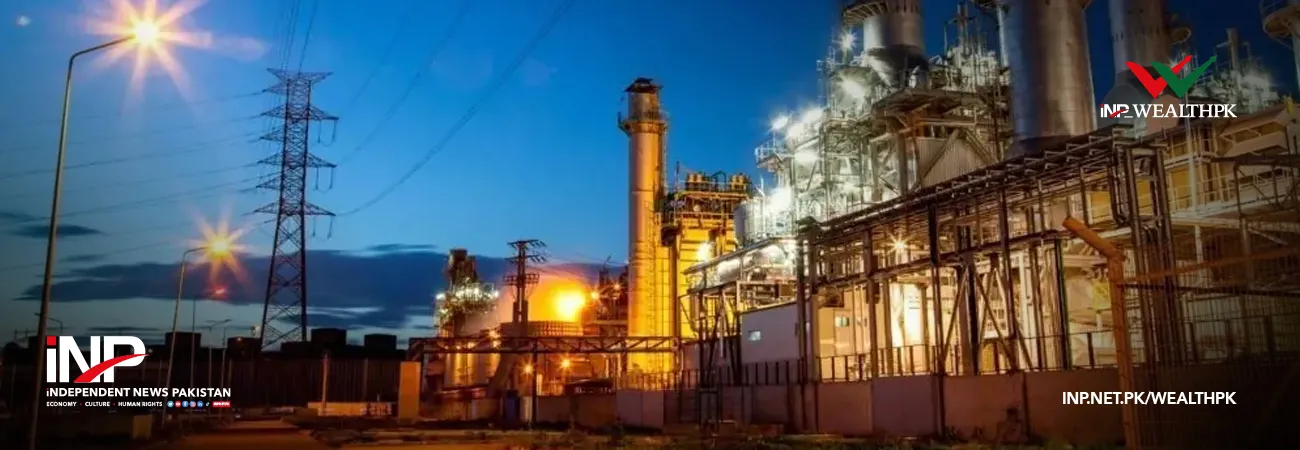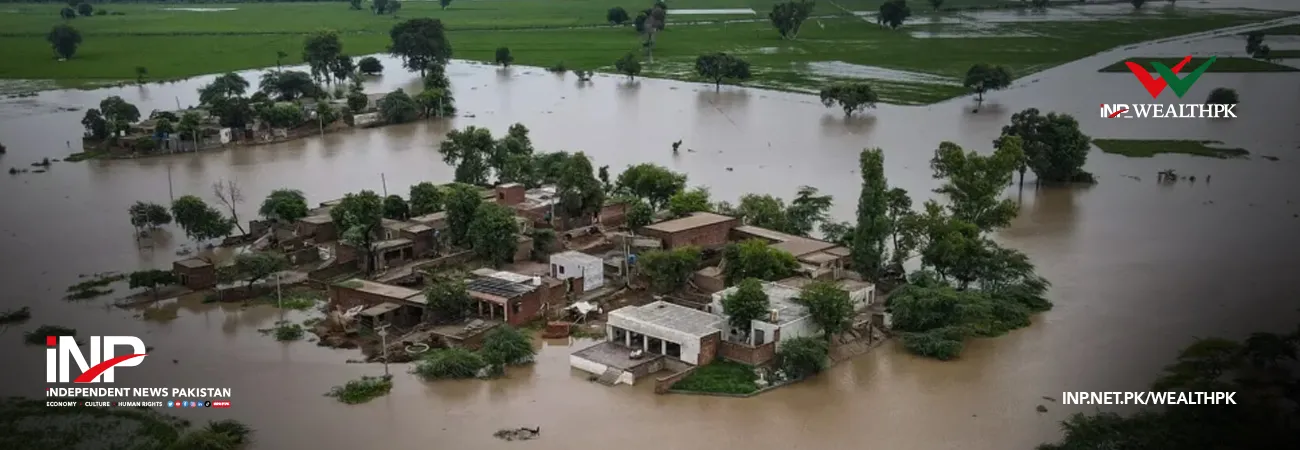INP-WealthPk
Faiza Tehseen
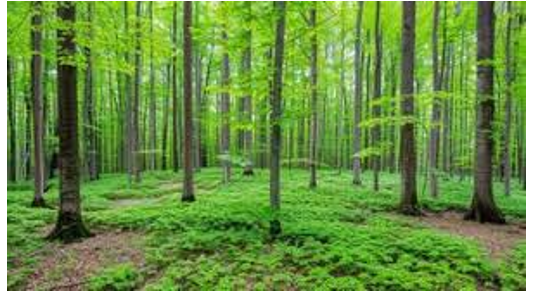
Forest ecosystem conservation for carbon sequestration is direly needed in a country like Pakistan, which is highly vulnerable to the effects of climate change. Talking to WealthPK, Muhammad Atif Majeed, Deputy Director of Pakistan Forest Institute, Peshawar, said: “Deforestation, forest degradation or the destruction of forest ecosystem release stored carbon back into the atmosphere, exacerbating global warming. Trees and other vegetation absorb CO₂ during photosynthesis and store carbon in their biomass (trunks, branches, leaves and roots) and in the soil. Forests are one of the largest carbon sinks on the planet as they absorb and store more carbon than they emit.” Atif said that a healthy forest ecosystem supports a diverse range of species, playing a role in maintaining the ecosystem’s functioning.
“Forests ensure the effective ecosystem continuity and their carbon sequestration ability. Forests prevent erosion and maintain the nutrient cycles of soil. A healthy earth stores large amounts of carbon that enhances the forests’ role in carbon sequestration,” he explained. He said: “Forest ecosystems influence local and global climate patterns by regulating temperature, precipitation and weather patterns. The various forest ecosystem services support human well-being, such as water purification, flood regulation, and air quality improvement. These services are interconnected with carbon sequestration, making forest conservation beneficial from multiple perspectives.” Atif said that overall, maintaining and restoring forest ecosystems was a key strategy in the fight against climate change as it helped ensure that forests could continue to sequester carbon effectively while providing numerous other ecological and societal benefits.
He said forests could be protected with strict law enforcement, proper policies, effective governance and sustainable management practices. “Continuous research and monitoring are vital to assess the effectiveness of conservation and reforestation initiatives. Increasing public awareness can help garner support for conservation efforts.” Atif said by protecting and restoring forests, Pakistan can enhance its carbon sequestration capacity, adapt to climate change, and support sustainable development. Meanwhile, speaking to WealthPK, Aijaz Nizamani, a former conservator, and ex-secretary of the Sindh Forests and Wildlife Department, said in Pakistan, greenhouse gas emissions were continuously becoming a part of the atmosphere due to the resilience of fossil fuels. “Forest ecosystems play a vital role in carbon sequestration. Carbon emissions have become part of the atmosphere since the industrialisation began about 200 years ago.
If the carbon emissions are somehow waved off even today, neutralising them will take more than a hundred years.” Aijaz said forest ecosystems were the sieve that neutralised carbon. “Excessive logging, fires and mismanagement are a few factors destroying our forests,” he stressed, and also called for proper policies to address this issue. Besides the environment, he noted that the conservation of forest ecosystems could be a sure way of trade and business. “Carbon credits can fetch the government great wealth.” The conservator also emphasised the need to implement a regular check and balance mechanism and conduct awareness campaigns to conserve the forest ecosystems and further enhance their area through plantations.
Credit: INP-WealthPk



